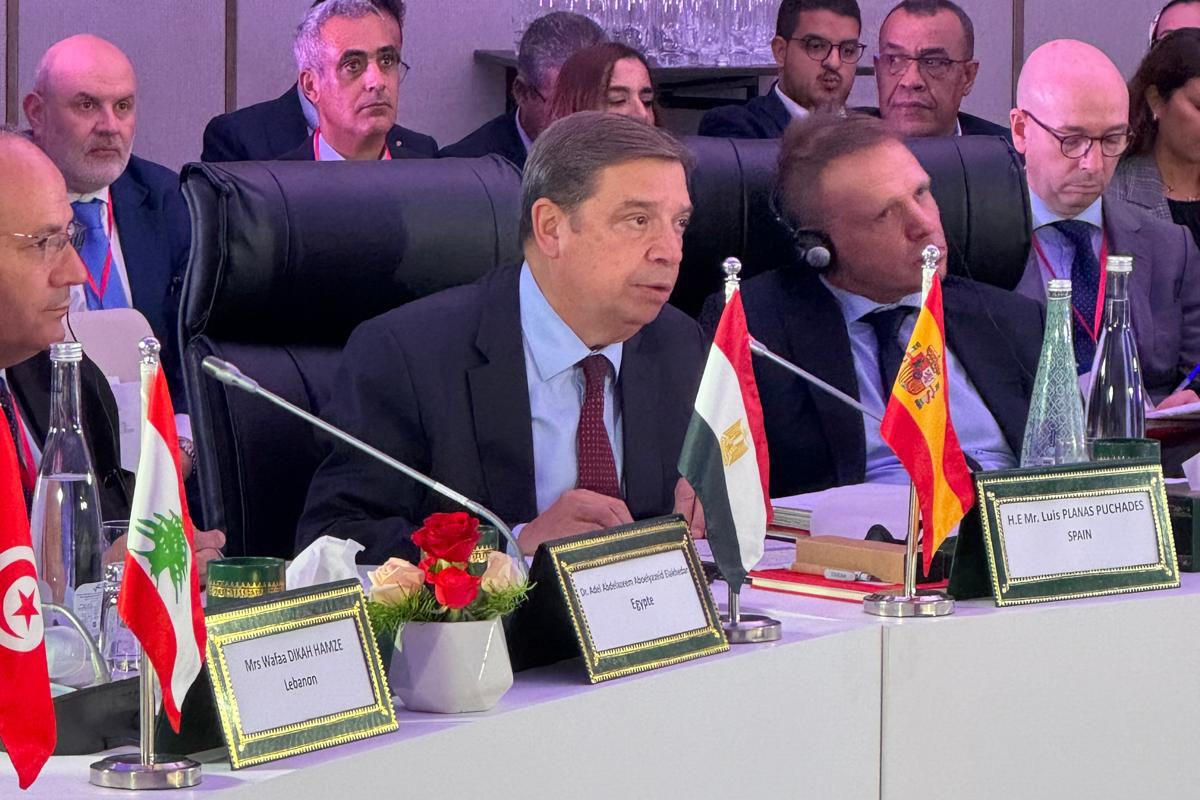Rabat, 12th meeting of Ciheam agriculture ministers
Planas: Cooperation is key to tackling agri-food challenges in the Mediterranean
News - 2024.10.25
 The Minister for Agriculture, Fisheries and Food, Luis Planas, during the ministerial meeting on agriculture of the member countries of the International Centre for Advanced Mediterranean Agronomic Studies (Ciheam)
The Minister for Agriculture, Fisheries and Food, Luis Planas, during the ministerial meeting on agriculture of the member countries of the International Centre for Advanced Mediterranean Agronomic Studies (Ciheam)
Luis Planas stressed that cooperation in agriculture and fisheries in the Mediterranean is now more relevant than ever to address together the challenges facing agri-food systems. In fact, the region is one of the worst affected by climate change, warming 20% faster than the global average.
Luis Planas took part in the 12th ministerial meeting on agriculture of the member countries of the International Centre for Advanced Mediterranean Agronomic Studies (Ciheam) in Rabat, Morocco, which is made up of 13 countries from the northern and southern shores of the Mediterranean. The ministers and senior officials of the participating member states adopted a joint declaration outlining the main challenges facing the Mediterranean region in the agricultural and fisheries field and the solutions to address them.
Planas acknowledged that climate change, water resource management and geopolitical conflicts affect food security and provoke unstable situations in international markets with a great impact on the most vulnerable populations.
On this point, the minister expressed the need to achieve peace in all territories, referring to the current conflicts in southern Lebanon. In addition, the minister stressed the importance of investing in the training of young people and women, especially in rural and coastal areas, to guarantee generational change and the future of the sector in the region.
Planas also highlighted the collaboration between the 4 institutes attached to Ciheam, including the one in Zaragoza. They develop their work in various training and scientific research projects and with organisations as important for the agri-food sector as the Food and Agriculture Organization of the United Nations (FAO), the International Organisation of Vine and Wine (OIV) and the International Olive Council (IOC).
Planas also underlined the important collaboration with the Ministry of Agriculture, Fisheries and Food on key issues such as conservation agriculture, water resource management, integrated pest management and training of fisheries scientific observers.
Spain is also very interested in other Ciheam projects such as the SFS-MED platform, which serves as a forum for debate and cooperation on sustainable food systems, or the MED-Amin network, which aims to facilitate the exchange of information on the important cereal market, as well as other working networks aimed at studying the conservation of Mediterranean flora or organic farming.
In addition to Spain, represented by Minister Planas, delegations from Italy, Malta and Morocco were also represented at the highest ministerial level, in a meeting that was also attended by high-level officials from other Mediterranean countries.
Spain is a founding member and an active country within Ciheam. Since 1969, the Mediterranean Agronomic Institute of Zaragoza has trained hundreds of professionals from all Mediterranean countries. In 2023, it had more than 460 students in its master's degrees and courses and more than 180 scholarships were awarded.
Non official translation




